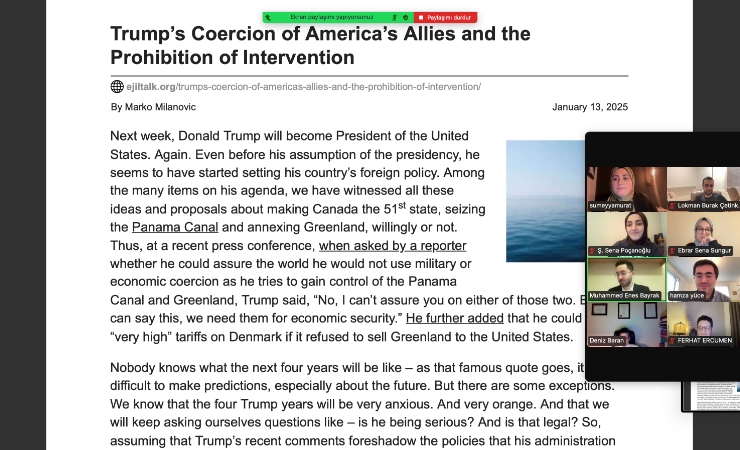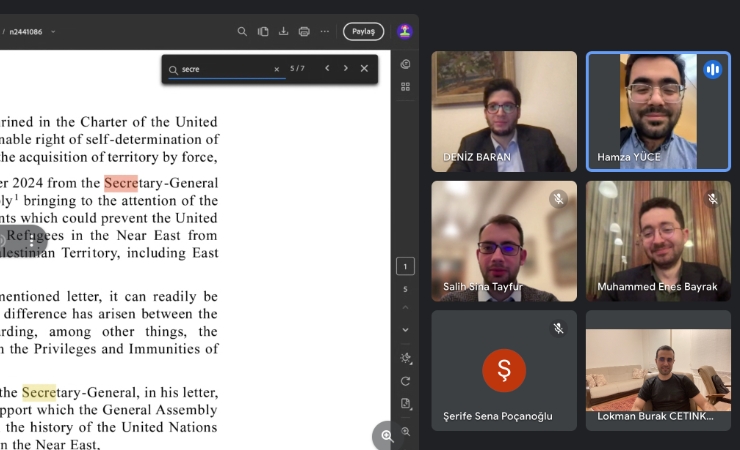
ABSTRACT
The insurgency in Libya, which occured as a part of Arab Revolutions in 2011, was attempted to be suppressed by Gaddafi regime by having carried out the massacres against civilians.
Many governments declared that Gaddafi regime lost its legitimacy since it has used military methods in its response against the rebels and civilians. Therefor, they called for United Nation Security Council to authorize an international coalition which would launch a military intervention into Libya in order to stop Gaddafi regime’s massacres.
Because of the strict attitute of those governments who advocated the military intervention into Libya, the other governments having prioritized the diplomatic solution efforts like Turkey were isolated from the decision-making process for the military intervention into Libya .
The Western countries which were in fact competing with each other for having a dominant role in the military intervention into Libya agreed on conducting the military operation under the umbrella of NATO. However, NATO’s military intervention’s compliance with international law was controversial because it was ambiguous whether the main purpose of the operation was to protect the Libyan people or topple Gaddafi and the operation also caused the civilian casualties.
Many of the international and regional players violated the UN’s arm embargo on Libya by sending weapons, military equipment or the military staff to the insurgent groups.
After the toppling of Qaddafi’s regime, the political stability could not been established in Libya and by 2014, the country has been splitted into de facto regions which were under the authority of the “competing legitimacies.” Numerous official reports on war crimes and crimes against humanity commited during the conflicts between those parties have been published.
The former General Khalife Hafter staged a coup against the General National Congress that was considered by the international community as the legitimate representative of Libya following the Revolution. He facilitated the establishment of the House of Representatives by gaining the support of the population in Eastern Libya and has been supported by many countries such as Russia, United Arab Emirates, France in spite of the war crimes the forces related to him commited in Libya. Ganfouda case, which is one of those war crimes, is examined in this research.
The United Nations that had no hesitation to launch a military intervention into Libya in order to protect the Libyan people against Qaddafi regime did not show the same decisiveness to protect the Libyan people who were again oppressed after the Qaddafi regime. The most distinct example of this assertion is that the UNSMIL which was authorized as a political mission to be assistive and supportive to the national efforts of local authorities in the transition process could not do its own duty in real terms. In addition to the apparent failure of the UNSMIL, Bernardino Leon, the former Head of UNSMIL, has been accused of getting involved in the bribery scandals, according to the Libyan politicians and public figures who have spoken to UHAM.
The United Nations’ organs and authorities lost credibility and the Security Council that has expressed its strong condemnation against violations of human rights and humanitarian law in almost every judgement relating to Libya, has failed to take suitable and adequate measures that will facilitate the establishment of the peace in Libya. Thus, the legitimacy of the UN’s existence in Libya and the Government of National Accord that was established under the auspices of the UN and subsequently recognized as the legitimate government of Libya has come under question.





